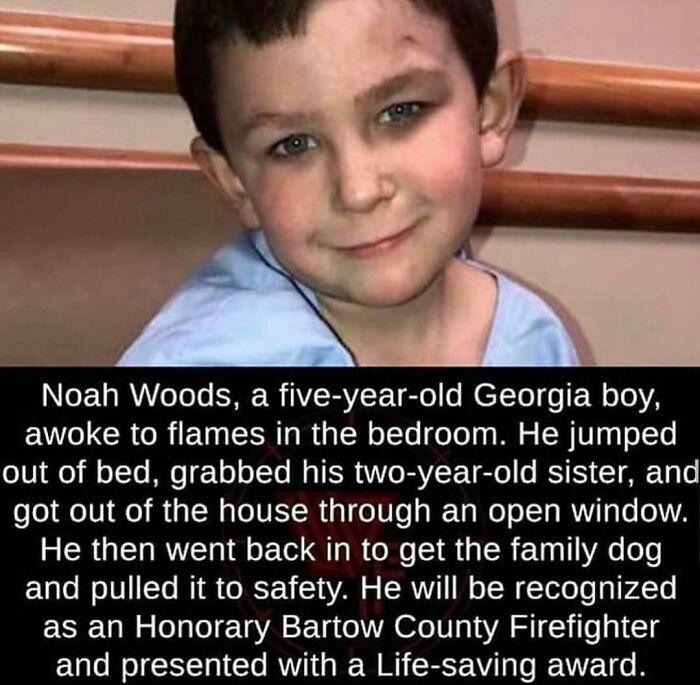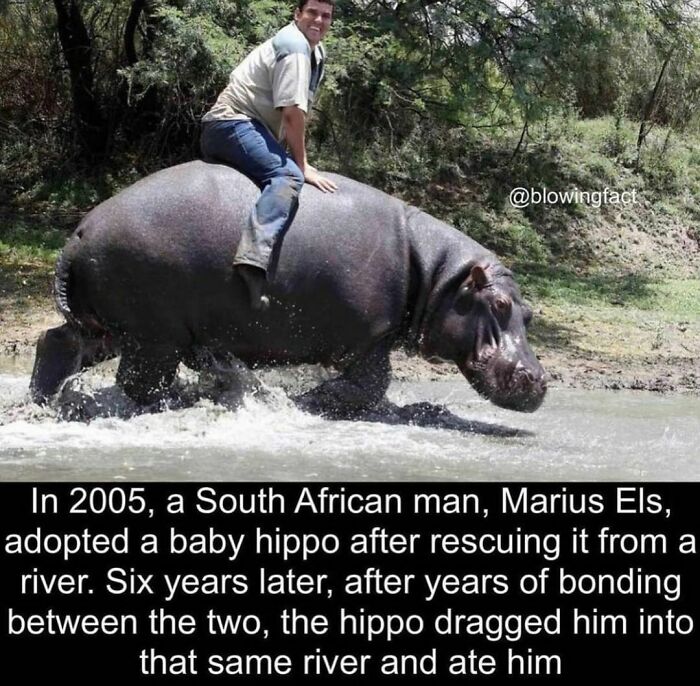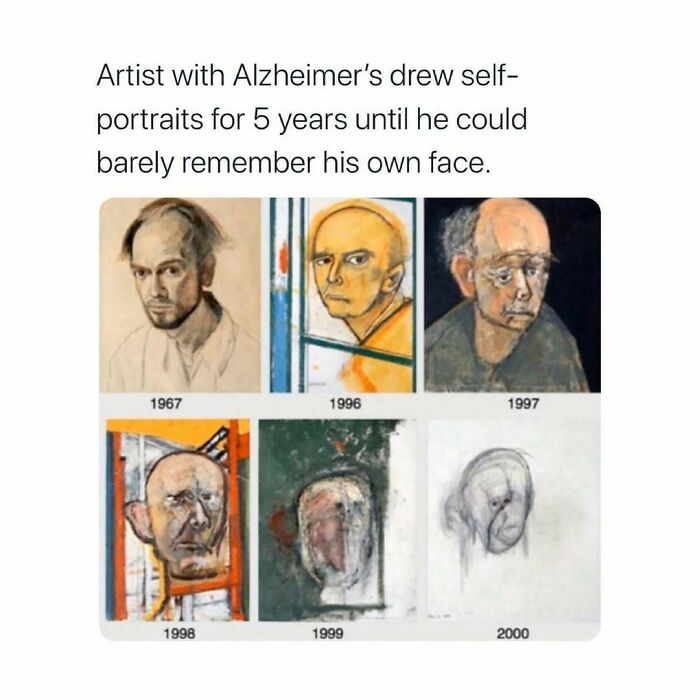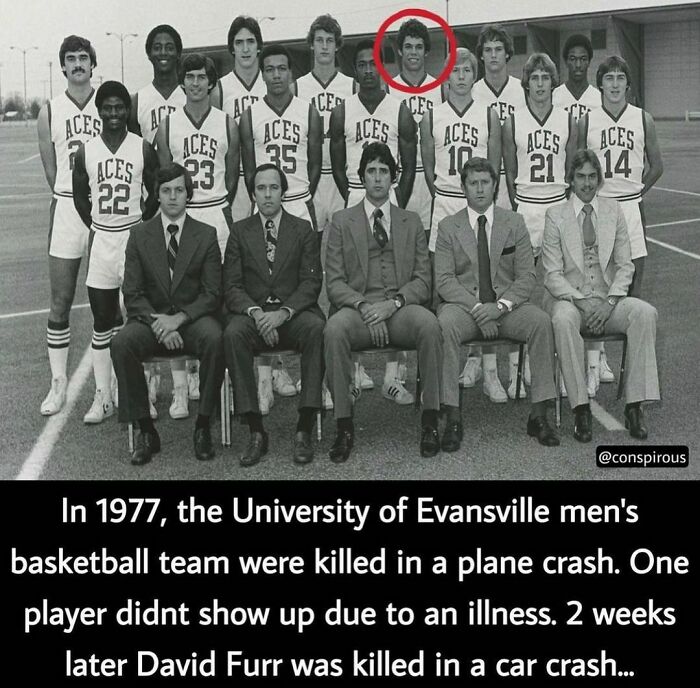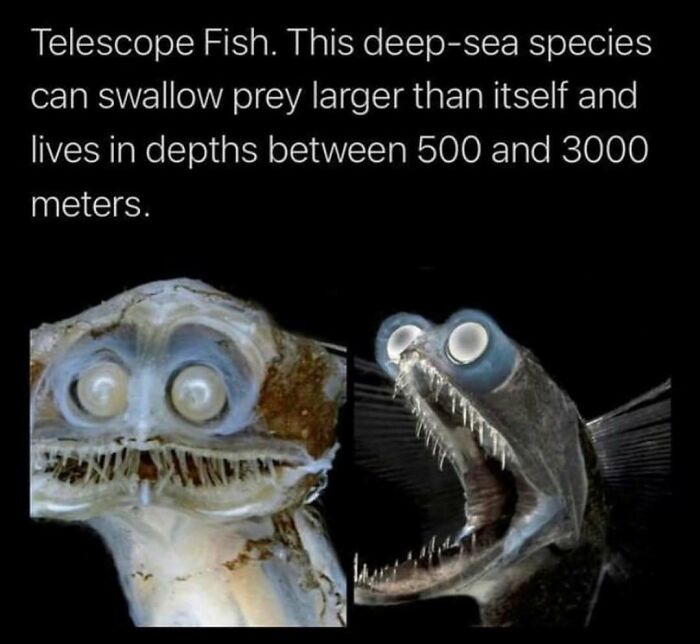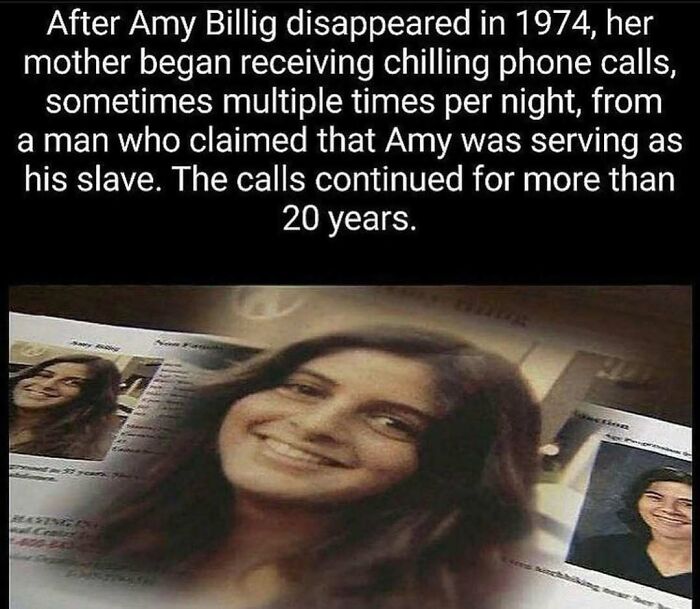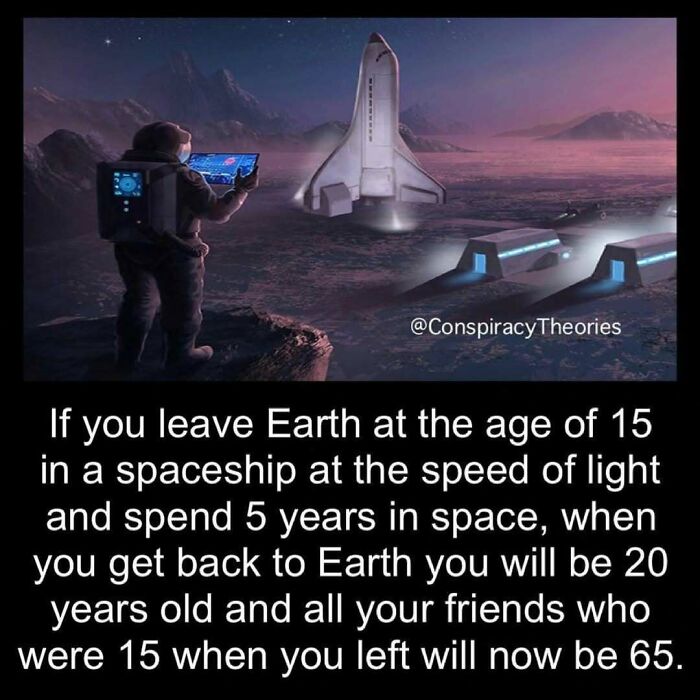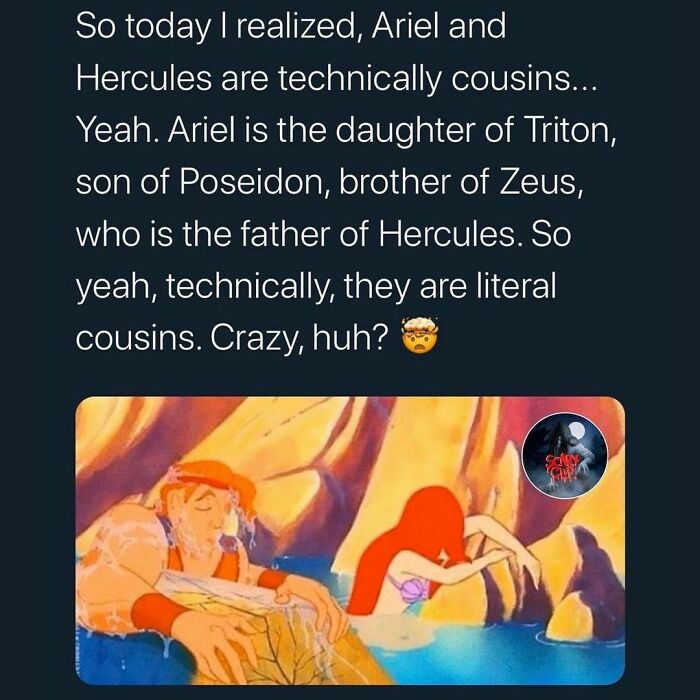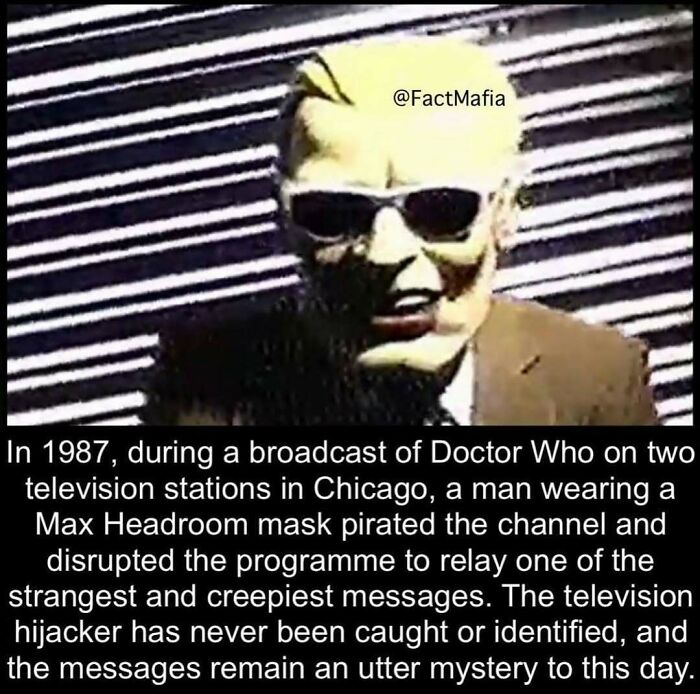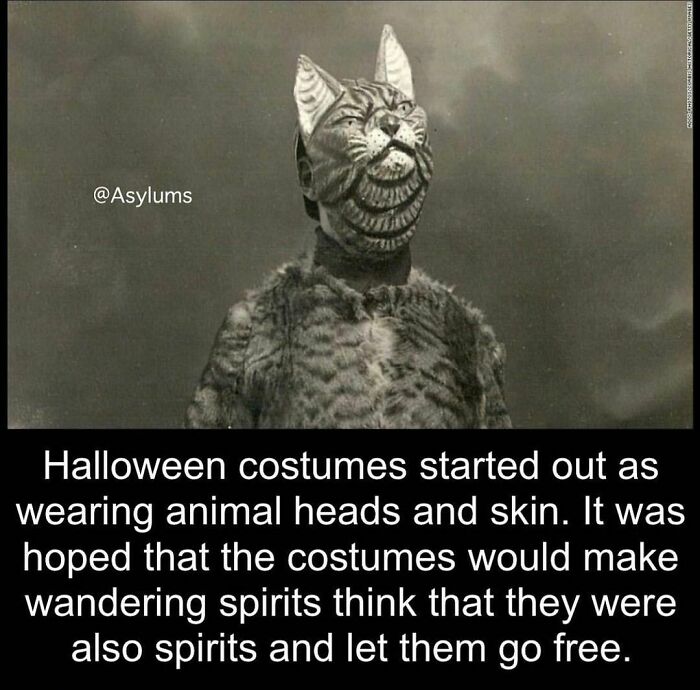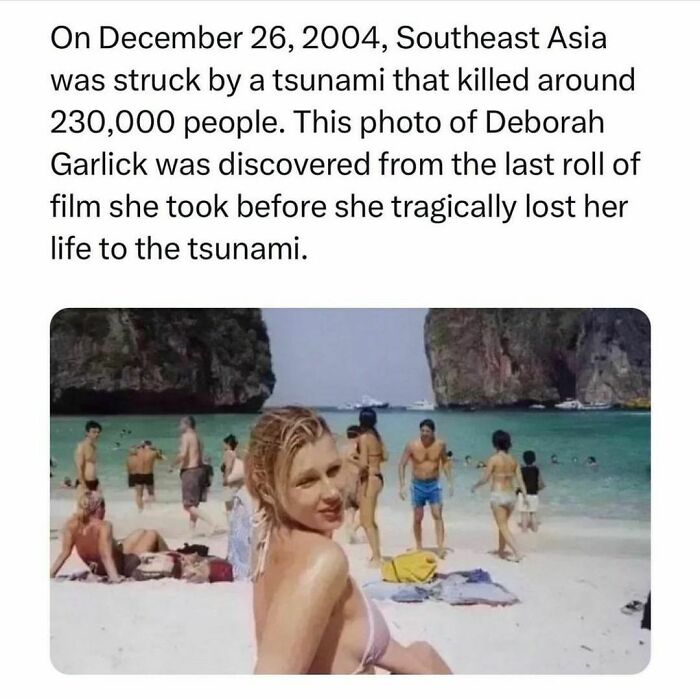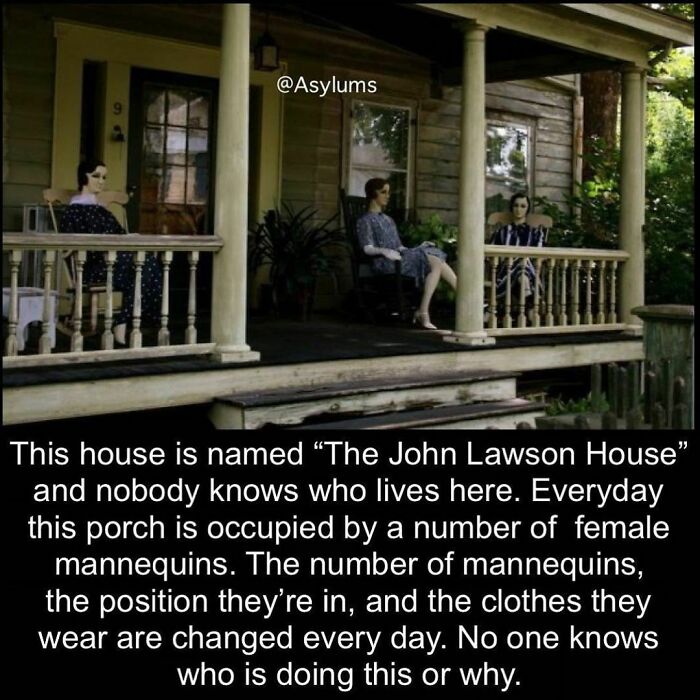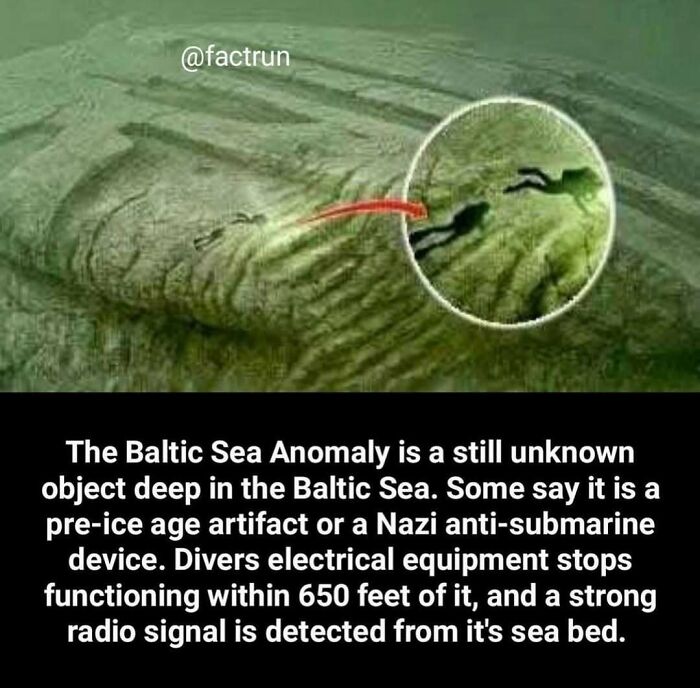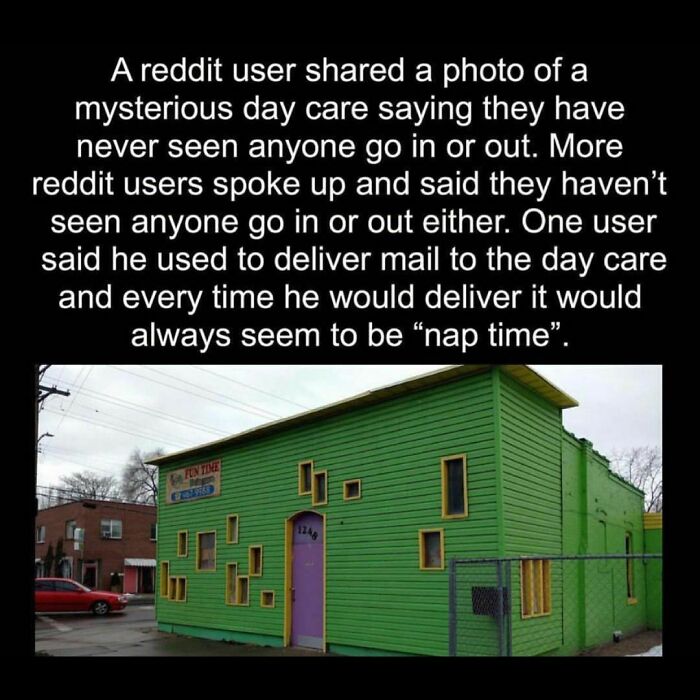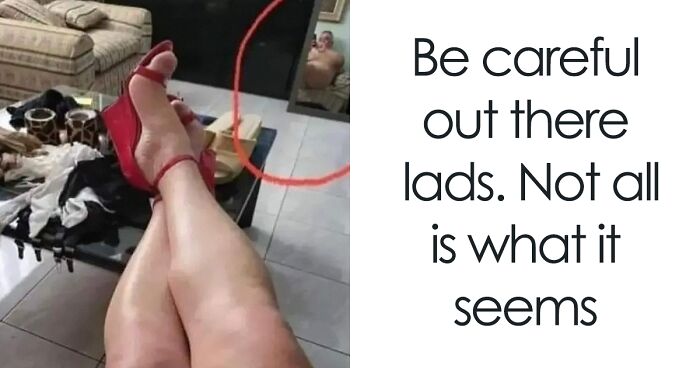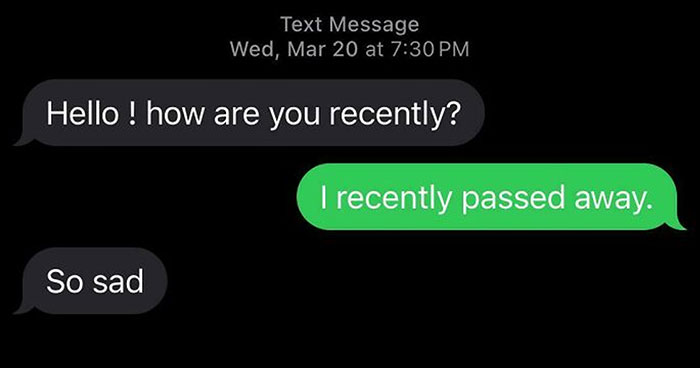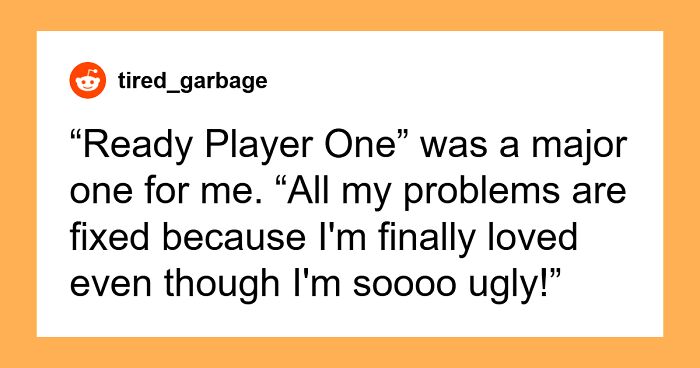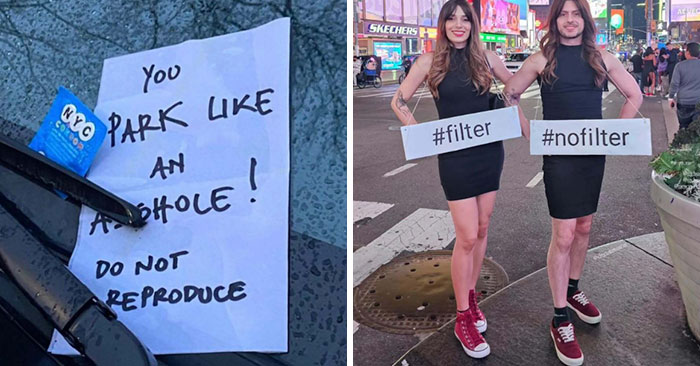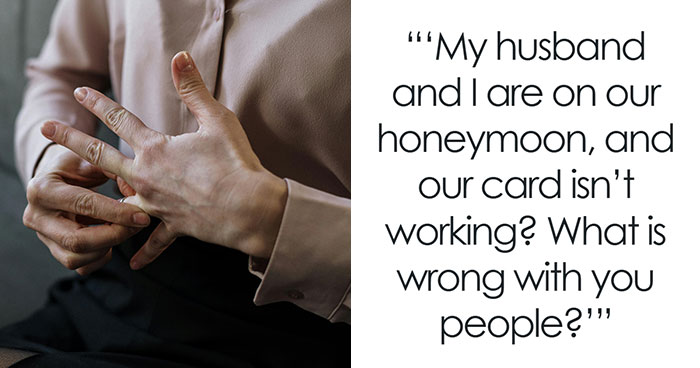
This Instagram Account Shares Weird Facts And Here Are The 50 Of The Creepiest Ones
Interview With ExpertHas anyone ever tried to convince you that we’re living in a simulation? Have you ever seen an extremely persuasive video claiming that the world is flat? And how do you feel about the video of the 1969 moon landing?
Reality is stranger than fiction, so there are dozens of events occurring every day that are almost impossible to believe. And at the same time, there are new conspiracy theories being born constantly. So to explore some of these curiosities, we took a trip to @ConspiracyFeedIG on Instagram. This account features fascinating true stories, as well as theories that can’t be proven. But whether you believe what you read here or not, these pics are certainly great conversation starters! Enjoy scrolling through, and keep reading to find conversations between Bored Panda and Danielle Mercy, host of The Rabbit Hole Podcast, and Greg Taylor, founder of Daily Grail.
This post may include affiliate links.
While this list features more stories that claim to be true than fringe theories, the @ConspiracyFeedIG account does says that it’s dedicated to sharing “mind-blowing theories,” so we wanted to delve deeper into some of those theories right here.
We reached out to Danielle Mercy, host of The Rabbit Hole Podcast, to find out more about conspiracy theories and where they come from. “Typically, conspiracy theories come from inconsistent stories,” the host says. “When the evidence is suggesting one thing, while the conclusion that is being published says another.”
So should we be taking conspiracy theories seriously? “It is important to look at all the facts of the theory before you decide if you believe it,” Danielle noted. “Not every conspiracy theory is true, but a lot of them are.”
“There have been many theories proven true. It is up to each person if they take a theory seriously or not,” she continued. “I think it depends on the amount of research that the person has put into the theory.”
We also asked Danielle about the theories that she's convinced are true. “I believe a lot of theories are true. The JFK assassination, 9/11, and the moon landing to name a few,” she told Bored Panda.
“I research conspiracy theories for a living, so I have found evidence to disprove the narrative that has been told to the public on each of these theories,” the host revealed. “Not just one or two things, I have found more evidence to disprove the narrative than to prove it.”
So will we ever be able to prove that these conspiracy theories are valid? “I think that individuals are proving that they are true, but the mainstream calls these people conspiracy theorists,” Danielle shared. “They label people like this to discredit them and the work they have done.”
“There are several cases that were conspiracy theories until the government released the information,” the host pointed out. “The Gulf of Tonkin Incident is one that was a theory until years later when the government released that the ship wasn’t actually under attack. However, I do not believe they will release information on all the theories. We probably won’t get answers on most of them.”
If you’re interested in finding out more information about certain conspiracy theories, Danielle says her podcast is a great place to start. “I go over all the angles associated with the theory,” she explained. “But I always encourage more research into each theory.”
“Unfortunately, when it comes to a conspiracy theory, you can’t trust any mainstream media source,” she added. “Unless you want to debunk the theory. The mainstream is trying to push the narrative that they created.”
“To research further, you must go to the blogs, the podcasts, the rumble videos, that don’t have huge corporate oversight to get the information,” Danielle shared. “And even if you do that, you must compare the information you are finding. Follow money trails. Researching conspiracy theories isn’t for the weak. You have to dig to get the information.”
Finally, Danielle added that, “It’s okay to just be curious about conspiracy theories. You don’t have to believe them to research them. When I started, it wasn’t because I was a conspiracy theorist, I was genuinely curious about the theories. In doing more research, I find that I believe a lot more theories, but that wasn’t why I started. And not any one source will give you all the information. So dig!”
We were also able to get in touch with Greg Taylor, founder of Daily Grail, to hear his perspective on this topic. "Conspiracy theories have no doubt existed across the world, and throughout human history - as a social creature, we have in-groups and out-groups that always have imbalances of power, as well as strange/bad things that happen to us that people want to explain, or at least blame someone for," he told Bored Panda.
"As such, people have always suggested that other people are doing bad things in secret. Sometimes they have evidence for what is an actual conspiracy - but a lot of the time they arise purely out of speculation and distrust, or bigotry, with a goal of making sense of the strange/bad thing, and finding a scapegoat for it," Greg explained. "That is why conspiracy theories quite often become more popular during difficult or unsettled times."
"As famed writer Alan Moore once noted, 'The main thing that I learned about conspiracy theory, is that conspiracy theorists believe in a conspiracy because that is more comforting. The truth of the world is that it is actually chaotic. The truth is that it is not The Illuminati, or The Jewish Banking Conspiracy, or the Gray Alien Theory. The truth is far more frightening - nobody is in control. The world is rudderless,'" Greg shared.
He also says that conspiracy theories should be taken seriously in two different ways. "Firstly, if there is solid evidence behind a conspiracy theory, then there would be an actual need to address the conspiracy that is happening. But secondly, spurious conspiracy theories have, historically, led to some very awful things happening to groups of people who became the scapegoats of a conspiracy theory," Greg explained. "For example, the 'Protocols of the Elders of Zion' contributed to awful persecutions of Jewish people in the 20th century... literal genocide."
Well I've put up with the ringing in my ears for decades so I guess hearing just that wouldn't bother me
The thing is it'd be super mega loud ringing as there'd be no other noises to drown it down. I have tinnitus as well
Load More Replies...Then count me among your weird people.
Load More Replies...The brain needs stimulation, if those are missing it creates it themselves to stay busy (from an article about this experiement)
Yeah, I'd just fall asleep, just like I did when I used to meditate during yoga...
Load More Replies...I believe Rolls Royce built a car that was so silent (no engine noise, road noise, wind noise etc.) that it made people feel ill to travel in it. They re-engineered it to have a whisper to cure the issue.
Rolls Royce has a few silent cars including the Spectre and the Ghost. They had add what they called "Ghost- lusters" to filter ambient noise in the cabin to keep drivers from becoming disoriented. It's kinda like the Mustang MachE, which is an electric car and doesn't have any sound let alone the typical growl you'd expect from a Mustang, so they have the option to add an artificial engine noise. Lol
Load More Replies...I would like to have there 10-12 hours. A complete rest. Just sleeping without any noises.
Life in a room like that would be the perfect punishment for anyone who abuses animals, children or seniors.
Wait until you can hear your blood running from your eyeballs to your ears.
Sounds aren't blocked, there's just no reverb so almost all sound is attenuated. And people have definitely stayed longer than that.
I love how many people in the comments think they're better able to handle the 45 minute mark. Do you think they haven't tried it with a LOT of people? It's a built in party trick. It's not just about the sound. We feel sound waves all the time without thinking about it. I've been in this room. The first thing I experienced was my muscles tensing. It was like how i imagine being completely encased in AB foam would feel like, minus the noise from the endothermic reaction. It's not just that it was silent, you suddenly realize you're used to being bombarded with soundwaves in your every day life. I started wringing my hands just to feel something. There's a reason that 45 minute time exists; even completely deaf people are affected.
I wonder if it's visual or auditory hallucinations? I mean I'm sure it's auditory but it would be strange if when it's so quiet you start seeing things...
I have auditory hallucinations if I'm up late at night and the rest of the house is silent. My first memory of them is from when I was about 5 and got up to use the restroom in the middle of the night. It sounds like a TV or radio is on in another room. It's loud enough to hear tone and inflection, but not actual words. *Edit: I suppose I could be possessed, but surely I'd present other symptoms. Haven't eaten a bunch of bugs, turned my head around, levitated, or anything!
Load More Replies...In the middle of the Greenlandic Inland Ice Cap it's so quiet that on windless days you can hear someone yelling from 10 km away. And your brain makes up a strange form of white noise just to cope with the complete silence. It's quite unnerving. I learned to zero in on the sound of breathing and rustling of the clothes of my travel companions
If you believed the part about hallucinations, please don't vote. (Too late, I know)
This is similar to the sensory deprivation tank also called the isolation tank. It was invented by Dr. John Lilly in the 50s. He also attempted communication with dolphins and experimented with LSD. Some of his contemporaries were Richard Alpert and Tim Leary. I read one of his books in a psych class, Center of the Cyclone.
Cutting a ping pong ball in half and taping it over ones eyes is a form of sensory deprivation that creates wonderful visual hallucinations.
I wonder if they have experimented with any meditators in this type of room?
Another fake story that is being treated as gospel because it keeps getting reposted by idiots
So is Greg convinced of any of these theories? "I try not to be 'believe' in any conspiracy theory, but I am willing to listen to evidence and decide if it should at least be entertained as a possibility," he shared. "By their very nature, I think unless they can be undeniably proven to be a conspiracy (and therefore no longer a 'conspiracy theory'), then they are always going to sit on a spectrum of plausibility. As author Robert Anton Wilson once put it, 'I don't believe anything, but I have many suspicions.'"
On the one hand, Greg says many conspiracy theories can be disproved with evidence.
"[For example], someone not being in the place they were claimed to be at. However, many others rely on 'facts' that are unprovable - they are purely speculation," he noted. "In those cases, you often can't disprove any of it. Those conspiracy theories are instead more akin to beliefs, and I'm not sure any rational, logical breakdown of them will work to dissuade the believers."
"In fact, even the former - when there is evidence to disprove the theory - won't make a difference if someone really wants to believe in the conspiracy theory," Greg added. "I have quite calmly refuted QAnon-related 'facts' to believers, only for them to completely ignore it (or in some cases, even find a way to make that refutation even more evidence for the conspiracy!)."
So how can someone research a conspiracy theory if they want more information? "Firstly, and perhaps most importantly, is to approach the research with an eye on your own biases and how they might affect your interpretation of any facts," Greg says. "It is very easy to pattern match things that aren't actually connected if your mind already has an image overlay for the pattern."
"To quote Robert Anton Wilson again, 'Don't buy into your own belief system, or B.S.' It's probably the leading reason for people falling into believing misinformation: wanting a conspiracy theory to be true so that it agrees with what you believe (or at least want to believe)."
"Instead, cross-check facts from multiple sources," Greg continued. "Explore fully and honestly any alternative explanations or theories. Be skeptical of all sources, but obviously give more weight to sources that have a track record of being objective and truthful, over sources that have a history of speculation, misinformation and lies (e.g. a journalist renowned for their investigative work over a random Instagram account)."
When I was a kid we were taught the telephone game so we could see how people repeating things to each other will automatically distort messages for their own sense of importance and entertainment. The author should be ashamed for enabling this b******t
When I was young it was called Chinese whispers.
Load More Replies...Adelaide Ross needs to look up the definitions of "creepy" and "conspiracy" and then she needs to learn to fact check herself.
Don't you get enough money from all the ads clogging up the article space? Now I have to pay to read? I'm over it BP
It’s such BS, isn’t it? I have enough companies with their hands in my pockets and now BP is doing it too, great 😑
Load More Replies...This list was terrible! Urban myths, junk that has been floating around the internet for ages, badly written, missing key pieces of info like locations. An attempt was made I guess.
A quick check on AI shows that many of these stories are untrue or have exagerrated facts added. Is there any way that BoredPanda could block some of these idiots?
Conspiracy theories are not becoming more popular. There is a fringe element in every generation that discovers old conspiracies and becomes obsessed, then embellishes them and creates new ones but I don't see nearly as many these days, people have become very jaded by them and good at debunking them imo.
"This Instagram Account Features Conspiracies, Here Are 78 Of Their Most Fascinating Theories" The posts on this page don't say anything about conspiracy theories.
"This Instagram Account Shares Weird Facts And Here Are The 78 Of The Creepiest Ones" 1 hour later - with some facts being absolute BS
Load More Replies...When I was a kid we were taught the telephone game so we could see how people repeating things to each other will automatically distort messages for their own sense of importance and entertainment. The author should be ashamed for enabling this b******t
When I was young it was called Chinese whispers.
Load More Replies...Adelaide Ross needs to look up the definitions of "creepy" and "conspiracy" and then she needs to learn to fact check herself.
Don't you get enough money from all the ads clogging up the article space? Now I have to pay to read? I'm over it BP
It’s such BS, isn’t it? I have enough companies with their hands in my pockets and now BP is doing it too, great 😑
Load More Replies...This list was terrible! Urban myths, junk that has been floating around the internet for ages, badly written, missing key pieces of info like locations. An attempt was made I guess.
A quick check on AI shows that many of these stories are untrue or have exagerrated facts added. Is there any way that BoredPanda could block some of these idiots?
Conspiracy theories are not becoming more popular. There is a fringe element in every generation that discovers old conspiracies and becomes obsessed, then embellishes them and creates new ones but I don't see nearly as many these days, people have become very jaded by them and good at debunking them imo.
"This Instagram Account Features Conspiracies, Here Are 78 Of Their Most Fascinating Theories" The posts on this page don't say anything about conspiracy theories.
"This Instagram Account Shares Weird Facts And Here Are The 78 Of The Creepiest Ones" 1 hour later - with some facts being absolute BS
Load More Replies...
 Dark Mode
Dark Mode 

 No fees, cancel anytime
No fees, cancel anytime 





